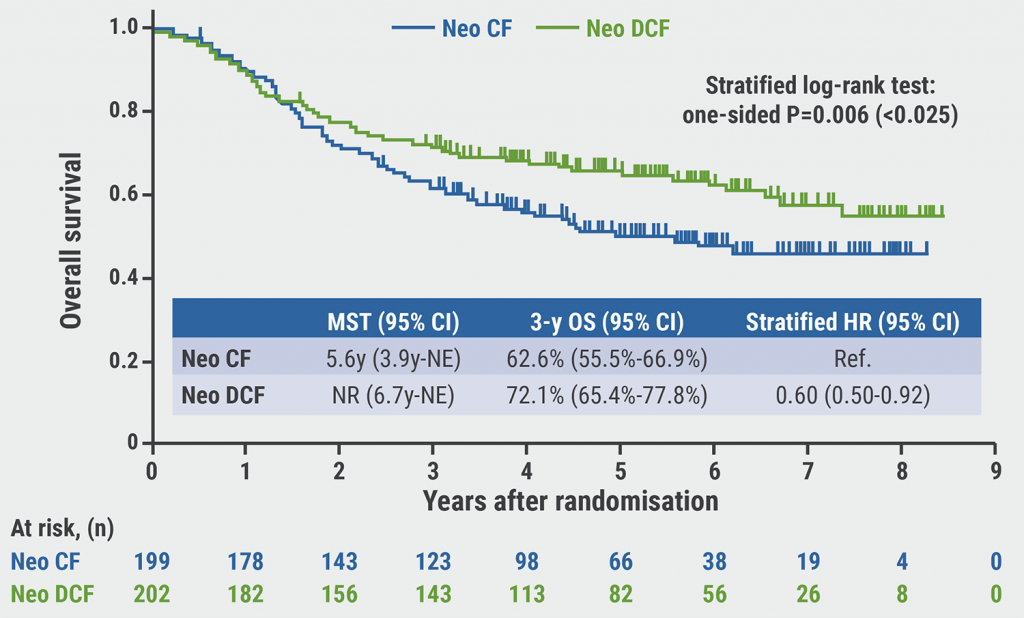Researchers analyzed data on 163 adults with HPV-related oropharyngeal cancers and 345 matched controls who were treated at an otolaryngology clinic for conditions unrelated to cancer. Participants completed a behavioral risk survey that detailed any recent sexual activity, number of sexual partners, types of sex acts, age at sexual initiation, and other sexual health factors such as partner characteristics and substance use.
Overall, people with a history of more than 10 oral sex partners were more likely to have HPV-related oropharyngeal cancer (odds ratio 4.3), researchers report in Cancer. In addition, risk was higher among those who had engaged in oral sex for more than five years (adjusted OR 2.8) and those who initiated oral sex before the age of 18 years (aOR 1.8) versus initiation at age 20 or older.
People with more than 10 casual sex partners also had an increased risk of HPV-related oropharyngeal cancer (OR 3.0), as did individuals who engaged in extramarital sex (OR 1.6) or suspected a partner had extramarital sex (OR 3.4).
"These factors are all surrogates of HPV exposure and demonstrate the nuance at play in the development of HPV-related oropharyngeal cancer," said lead study author Dr. Virginia Drake of the Department of Otolaryngology-Head and Neck Surgery at Johns Hopkins University in Baltimore, Maryland.
"Our study suggests it is not just the number of oral sexual partners, but other factors including things about your partner which may be surrogates for their behavior and how likely your partner is to be infected, for example, that also influence risk," Dr. Drake said by email.
Most of the study participants were heterosexual men ranging in age from 50 to 69 years, and most were also currently married or living with a partner. At baseline, only 26.5% of the men with cancer and 15.5% of men in the control group reported a history of sexually transmitted infections.
Lifetime history of having more than 10 vaginal sex partners was associated with increased risk of HPV-related oropharyngeal cancer (aOR 3.2), as was having more than five years of vaginal sex history (aOR 5.7), after accounting for smoking and lifetime oral sex partners.
Blood tests found that most cancer patients in the study tested positive for at least one type of HPV, and the risk of oropharyngeal cancer increased for those who tested positive for multiple types of HPV.
One limitation of the study is that behaviors were self-reported, making it possible that misreporting or recall bias influenced the results, the authors note. Many of the study participants may have become sexually active before an HPV vaccine was widely available, and it's possible results would look different in subsequent generations, they add.
Even so, it makes sense that a wide variety of sexual history factors could all independently influence the risk of HPV-related oropharyngeal cancers, said Caleb LoSchiavo of the Rutgers School of Public Health in Piscataway, New Jersey.
"Human papillomavirus is the most common sexually transmitted infection among adults in the U.S. and if someone has been having sex for a longer period of time or has had more sexual partners, they've had more opportunities to be exposed to HPV through those sexual encounters," LoSchiavo, who wasn't involved in the study, said by email.
The risk may be even greater for those who are older or whose partners have been older, as they may not have been eligible for the vaccine when it was originally introduced, LoSchiavo added.
Many clinicians are unaware that HPV vaccination is recommended for men and women up to 45 years old, said Dr. Neil Gross, a professor of head and neck surgery at The University of Texas MD Anderson Cancer Center in Houston.
"Clinicians need to be more proactive in promoting the vaccine, and not just with teenagers," Dr. Gross, who wasn't involved in the study, said by email. "Clinicians also need to be more open discussing sexual and drug behaviors with patients."
SOURCE: https://bit.ly/2Ln2x9g Cancer, online January 11, 2021.
By Lisa Rapaport
Posted on


